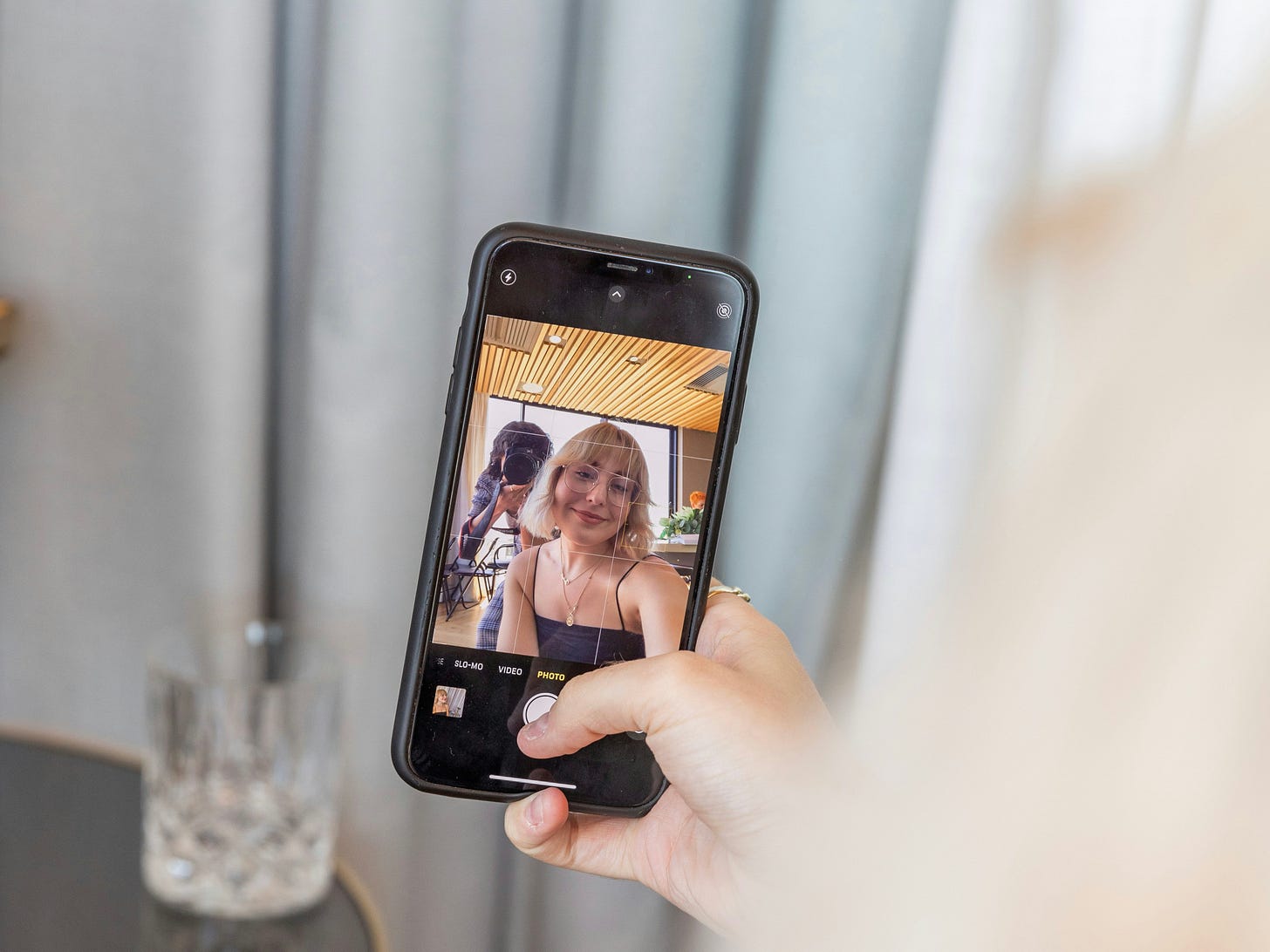Worried About Cyberbullying? Get Off Social Media
Social media is less a community, more a Colosseum.
An email landed in my inbox last week: “How to Stop Your Child From Being Cyberbullied, According to an Expert.” I clicked it open, read an introductory paragraph about how cyberbullying has become “a pervasive and distressing issue” that is negatively affecting many children’s mental well-being. The article offered tips for parents to “prevent and address” cyberbullying.
Curious, I kept reading. But what followed was the most insipid list of advice I’ve ever read. There were six suggestions: Keep records of incidents. Block bullies. Foster open communication. Monitor child’s online activity. Involve school authorities. Seek professional help.
A more apt headline might have been, “How to Do the Bare Minimum to Protect Your Child From Cyberbullying.”
I felt disbelief at how toothless all the suggestions were, how they avoided getting at the real root of the problem, which is that children are spending time in an online world where they do not belong and where they are exposed to an incessant barrage of outsized cruelty that parents cannot possibly dream of controlling.
Despite the obvious fact that removing the child from such an environment would be the most effective way to mitigate harm, not one of the “expert” suggestions was to get the child off social media. Nowhere did it say, “Deactivate your kid’s social media profiles and delete the apps from their phones,” even though that struck me as the most glaringly obvious and effective solution.
There was no reassurance that a child’s FOMO from being disconnected from (presumably nicer) friends would be a fraction of the pain inflicted by continually making themselves available to nasty online bullies. Instead, the subtext was to sit back and “watch, listen, communicate” while… what? Your child dies by a thousand micro-cuts? Just so they can stay “in the loop”?
There is a time and place for pushing a child out into the world and exposing them to challenging situations. This is not it.
An Appropriate Response
As I looked at the email, a thought popped into my head. Imagine swapping out “cyberbullying” throughout the article with hard drugs, and then see how laughably feeble, bordering on neglectful, such a response would be to help a child in distress:
“Keep records of all your child’s overdoses! Delete the dealer’s number from their phone! Keep talking to your kid! Monitor how often and how much they use! Ask the school to run a workshop on why drugs aren’t smart! Call a therapist!”
Whatever happened to treating a problem like the Very Big Deal it is, and taking drastic action as early and swiftly as possible to ensure it doesn’t get worse or, heaven forbid, result in a tragic end?
This made me think of an analogy to discipline in the home, where a parent has a responsibility to set consequences that match the severity of a child’s misbehaviour, even when it’s inconvenient and hard to do.
Calibrating one’s response to the severity of a social problem like cyberbullying is similar. If cyberbullying is as devastating to children as we know it to be, then why the tepid, cautious response? This should be a time for fierce outrage, for doing everything it takes to keep a child safe. The response should match the potential threat to the child. Put simply, make them less accessible to bullies.
Kids Don’t Need Social Media
They are not entitled to it. It is not “their right” to use these platforms, just because everyone else is. In fact, the evidence is piling up that they should be nowhere near these platforms until at least the age of 16, if not later. (See Haidt’s work on this.)
Social media platforms expose children to the uninhibited instincts of jealous, mean children (not to mention creepy adults), who find that the mediating presence of a screen makes it easier to objectify and vilify someone than if they were face-to-face.
And the platforms amplify teasing in a way that’s sadistically gratifying. It’s a recipe for disaster. Stop calling it a community; it’s more like the Roman Colosseum. The temptation for bloodshed is irresistible for many.
Looking Back
To parents who ask me for advice, I say, “It’s never too late. Your kid does not have to be on those platforms. You can deactivate, delete, step away for a few years.” They will thank you for it later. And if you’re doubtful, asking yourself: Do you wish you’d had social media at their age? I suspect not.
I am starting to hear more about teens and young adults who wish their parents had waited longer to let them have social media. Writing for Glamour, Robyn Eugene says she joined Instagram at age 12. She was 13 when
“the first nude photograph of a girl landed in the inbox of everyone at school… Our shock, mixed with a sense of scandal, curdled and created a mob mentality. Sniggers and misogynistic slurs erupted amongst groups of girls huddled around Blackberry Curves or iPhone 2Gs, who pinged the images on and on throughout the school.”
Looking back as an adult, Eugene feels “serious shame” at the role she played in creating a toxic online environment for other girls, but she also wonders why her parents didn’t take a sterner stance:
“I wish I’d not been allowed on these apps until I was old enough to understand their impact. I can hear the 12-year-old in me cry out in disgust at that statement, and I know my mum would have had a war on her hands trying to restrict my access to something so seemingly essential to the success of my social life. But with technology advancing so rapidly, the opportunities for kids to abuse it have exploded.”
Be the Parent They Need
In other words, the kids can’t handle it. So, parents need to do their job. Parents need to protect their kids—and other kids—by getting them off these platforms. A clean break is so much simpler than trying to “manage” the Hydra that social media has become (and lying to oneself that one is actually succeeding at doing so).
The current approach, as outlined in the email I received, fails to protect our children. It operates based on the assumption that children must be on social media—and I fundamentally disagree with that. They do not need to be. They should not be. And they will be better off without it.
You Might Also Like:
It’s the Adults, Not the Kids!
An Antidote to Aimlessness
Subtract Yourself
On Subscriptions:
The Analog Family is a reader-supported newsletter. If you value my work, please consider upgrading to a paid subscription for only CAD$7/month (the cost of one large fancy latte!) or CAD$70/year. Your support keeps this project growing and is hugely appreciated.
A Newly Discovered Interview:
My son Googled me on a whim last week, and up came this lovely interview with the Bruce County library—that I’d never seen before! If you’re interested in learning more about my writing process, my favourite childhood book, and a fun hack for recording audiobooks, please check out this 12-minute YouTube interview.






I can't wait to print this and give it to my school SEL team. This should be the first line item in how to deal with parents who bring this to schools to solve.
I too have wondered about these types of "suggestions or lists" and why they even exist for children. A couple years ago I attended a meeting put on by my children's middle school. Essentially titled the same as the email you received. All the parents introduced themselves, said how old their kids were, what devices they had, accounts, and what they hoped to learn. I hadn't planned what to say but when it came my turn I told about my children and then said I'm here to know what your children are on so I can educate and guide my children what to do when they ask me about social media, why they won't have access and how to handle friends who they will encounter obsessing. I sat through that meeting thinking just take away the phones and that was never presented. I left that meeting vowing my teenagers would just have to wait. Not sure for how long but 13 still was not old enough. I'd say something more bold at that meeting if I went today. My kids still don't have phones and there is no plan for them entering their lives for many more years.